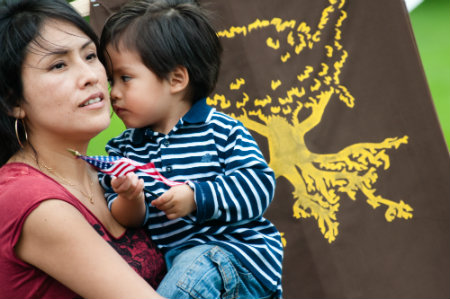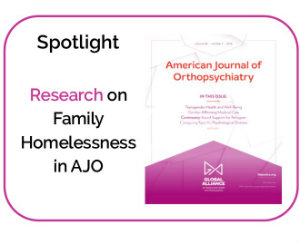Homelessness
The good news is that the number of individuals who are homeless has declined in recent years. But so much more needs to be done. The lack of access to safe and stable housing is still a barrier to economic independence, quality health care, and social support for the most vulnerable in society. Family HomelessnessIn declaring that "no one should experience homelessness, no one should be without a safe, stable place to call home," the United States Interagency Council on Homelessness has set 2020 as the goal for preventing and ending homelessness for families, youth, and children. Although the number of homeless families has declined in recent years, far too many families still lack safe and stable housing. Furthermore, the number of renters with very low incomes who do not receive government housing assistance and who either pay more than half their monthly income for rent, live in severely substandard housing, or both, is troubling. Families experiencing homelessness are similar to other families living in poverty. These families tend to be headed by young single women with limited education. Approximately 80% have been victims of domestic violence. They have other challenges as well, including exposure to community violence and high rates of mental illness. According to the United States Interagency Council on Homelessness, they may have less access to housing subsidies and supportive services and weaker social networks. For children, the experience of being homeless is often stressful and traumatic. Researchers in North Carolina found that these children are exposed to circumstances, including violence and chronic poverty, that place them at risk for a range of adverse outcomes, including mental health, health, and academic problems. Position Statement on Family HomelessnessIn response to the release of "America's Youngest Outcasts" in 2009, we joined with the National Center on Family Homelessness to develop a special section on parenting and homelessness in the American Journal of Orthopsychiatry Position Statements on Homelessness
Want to learn more?
What can you do?
|


